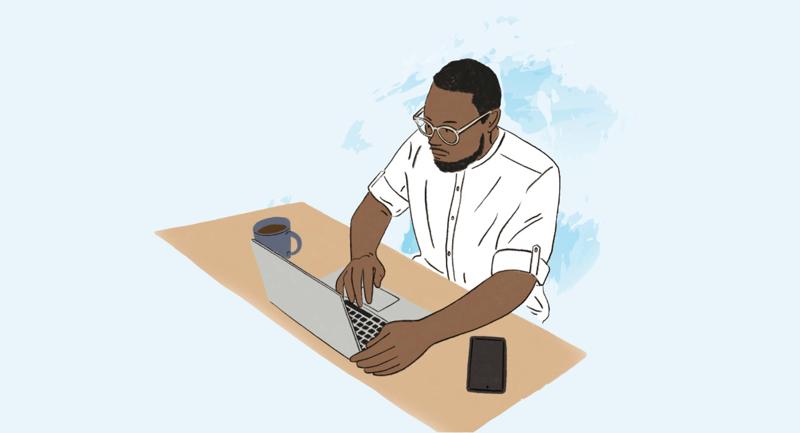Too many educators today covertly or tacitly believe racism has ended in schools and society. They may inaccurately believe that racism is solely a function of individual acts, and because they do not believe they (as individuals) commit racist acts, they fail to understand that racism exists on the individual, systemic, institutional, and structural levels (Milner, 2015). So when we think of student mental health in schools, some may not even consider the insidious effects of racism that students of color experience.
But race is about far more than skin color. Race is constructed physically, contextually, socially, legally, and historically. And it is inextricably linked to patterns of prejudice and power structures (Carter, 2007). I have found in my research that, despite the best intentions, white teachers may develop and enact curriculum and instructional practices that contribute to inequity and harmful racial assumptions (Milner, 2010, 2015). Racism and racially tinged acts can and do occur both with intentionality and unintentionality, and the effects can be devastating in either case.
Battle Fatigue in the Classroom
Some students experience what are known as racial micro-aggressions, "brief and commonplace daily verbal, behavioral, or environmental indignities, whether intentional or unintentional, that communicate hostile, derogatory, or negative racial slights and insults toward people of color." (Sue et al., 2007, p. 271). Students may experience racial micro-aggressions inside or outside of school, but either way, the experiences can affect their mental outlook as students. In their research on higher education, McGee and Stovall (2015) found that uncomfortable, unwelcoming, stressful, and hostile campus climates can take a toll on students of color and result in health challenges that can ultimately influence their performance in classes. Moreover, these researchers linked racism and discrimination to anxiety, stress, depression, thoughts of suicide, and physical ailments like hair loss, diabetes, and heart disease.
Students in preK–12 classrooms may also experience racism that shapes their mental and psychological health. One high school student shared the following with me:
That s_ _ _ gets on my nerves. These d_ _ _ white people follow me around the store like I'm going to steal the clothes off their backs. The white boys are in the store and nobody's checking them. It's the brothers they follow around, you know? The s_ _ _ gets old. I'm sick of it. I've been working since I was 12 and saving. I can buy whatever I want in those d_ _ _ stores … but you know it's because I'm a brother that they checking every move I make (Milner, 2015, p. 158).
This student was visibly upset because he believed his being followed around the store was a direct consequence of his race. And this reference to an out-of-school societal reality was made during a conversation inside of school, which means the experience affected his thoughts about what it means to be a black student.
Another student shared an example of a type of micro-aggression that happens within school:
It's like whenever I say something in class, she [the teacher] is like "that's interesting." But when a white student says the same thing or makes the same point, she's like "that's a great point." I'm thinking that's exactly what I just said. She always does that so I just stop talking (Milner, 2015, pp. 158–159).
It's not uncommon for such interactions to prompt students, whether with conscious deliberation or not, to disengage and retreat from classroom discourse. The accumulation of these micro-level occurrences can take a toll on students of color and become significant, especially over time (McGee & Stovall, 2015).
Some researchers have even suggested that the persistent experiences of micro-aggressions can lead to racial battle fatigue (Smith, Hung, & Franklin, 2011). In other words, students of color can become psychologically and socio-emotionally exhausted from micro-aggressions they experience over time. This was the case with the student just quoted. "So I just stop talking" was her way of suggesting an element of fatigue as a consequence of her contributions to the classroom being devalued (intentionally or unintentionally). In short, in the powerful words of civil rights leader Fannie Lou Hamer, this student appeared to be "sick and tired of being sick and tired."
Breaking the Pattern
Regardless of their racial and ethnic background, educators can be successful in teaching across racial and ethnic differences if they develop the knowledge and skills to do so (Ladson-Billings, 2009; Milner, 2010). This requires, first and foremost, being aware of the ways in which racially tinged interactions, in any setting, can have real consequences for students' mental, emotional, and psychological health.
Starting at the teacher-education stage, teachers need training in disrupting and responding to the ways in which students experience racism. As discussed, students may be enduring micro-aggressions on a daily basis—being followed around a department store or feeling as if their contributions to discussions are devalued. Over time, these students may become depressed, frustrated, and eventually stop participating. It is unlikely that counselors and psychologists will be able to address these challenges without assistance from classroom teachers.
Building on the research of Rowe (2008) and Kohli and Solórzano (2012), education professor Tyrone Howard has outlined several powerful suggestions to combat micro-aggressions and other forms of racism through what is known as micro-affirmations. Teachers must affirm and communicate to students a space of solidarity embodied in statements such as "I see you. I value you. I appreciate your differences. I am committed to understanding your needs. I believe in your potential. I want to support you." (Howard, 2017).
Students' mental and psychological well-being is essential to their ability to reach their full social and academic capacity in classrooms, schools, and society. Mental health support in schools must expose and respond to the pervasiveness of racism that students still experience everyday across this nation. The time is now.





